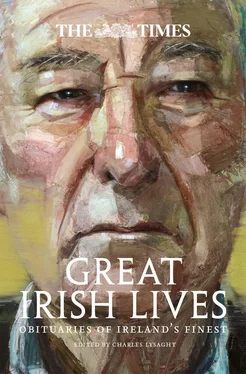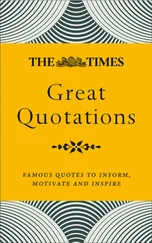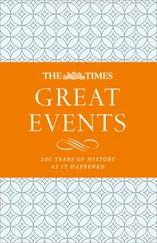* * *
MRS CECIL ALEXANDER
14 OCTOBER 1895
MRS CECIL FRANCES ALEXANDER, so well known as “C.F.A.,” died at the Palace, Londonderry, at 6 o’clock on Saturday evening after a few weeks’ illness. She was born in county Wicklow in 1818, and was the daughter of Major John Humphreys, who served with distinction at the battle of Copenhagen and was afterwards a landed proprietor and extensive land agent in Ireland. In 1847 she married the Rev. William Alexander, who became Bishop of Derry and Raphoe in 1867. In all religious and charitable works in Londonderry and the diocese she took a wise and energetic part. She possessed a simple and straightforward dignity of manner, which gave a peculiar distinction to her in social relations. Among the poor and aged she was loved with pathetic intensity. It is, however, upon her writings that Mrs Alexander’s extended fame is built. She had a natural bent for poetry, and her early intimacy with Keble and Hook stamped her mind with a lasting impression. Her “Hymns for Little Children” and “Moral Songs” have had an immense circulation. Her less widely known “Poems on Old Testament Subjects” reach a loftier practical standard, but it is by certain of her hymns especially that she will be remembered, not only within the Anglican Church, but by all Christian communities. Of several of these Gounod said that they seemed to set themselves to music. Six only need be indicated- “The roseate hues of early dawn,” “When wounded sore the stricken soul,” “His are the thousand sparkling rills,” “Jesus calls us o’er the tumult,” “All things bright and beautiful,” and “There is a green hill far away.” The “Burial of Moses” is her best known poem. Of this Tennyson observed that it was one of the poems by a living writer of which he would have been proud to be the author. The Rev. F. A. Wallis, of the Universities’ Mission to Central Africa, preaching in Londonderry Cathedral yesterday, mentioned that he had heard Mrs Alexander’s hymns sung by half-clad Africans in a language she had never known.
OSCAR WILDE
1 DECEMBER 1900
A REUTER TELEGRAM from Paris states that Oscar Wilde died there yesterday afternoon from meningitis. The melancholy end to a career which once promised so well is stated to have come in an obscure hotel of the Latin Quarter. Here the once brilliant man of letters was living, exiled from his country and from the society of his countrymen. The verdict that a jury passed upon his conduct at the Old Bailey in May, 1895, destroyed for ever his reputation, and condemned him to ignoble obscurity for the remainder of his days. When he had served his sentence of two years’ imprisonment, he was broken in health as well as bankrupt in fame and fortune. Death has soon ended what must have been a life of wretchedness and unavailing regret. Wilde was the son of the late Sir William Wilde, an eminent Irish surgeon. His mother was a graceful writer, both in prose and verse. He had a brilliant career at Oxford, where he took a first-class both in classical moderations and in Lit. Hum ., and also won the Newdigate Prize for English verse for a poem on Ravenna. Even before he left the University in 1878 Wilde had become known as one of the most affected of the professors of the aesthetic craze and for several years it was as the typical aesthete that he kept himself before the notice of the public. At the same time he was a man of far greater originality and power of mind than many of the apostles of aestheticism. As his Oxford career showed, he had undoubted talents in many directions, talents which might have been brought to fruition had it not been for his craving after notoriety. He was known as a poet of graceful diction; as an essayist of wit and distinction; later on as a playwright of skill and subtle humour. A novel of his, “The Picture of Dorian Gray,” attracted much attention, and his sayings passed from mouth to mouth as those of one of the professed wits of the age. When he became a dramatist his plays had all the characteristics of his conversation. His first piece, Lady Windermere’s Fan , was produced in 1892. A Woman of no Importance followed in 1893. An Ideal Husband and The Importance of Being Earnest were both running at the time of their author’s disappearance from English life. All these pieces had the same qualities – a paradoxical humour and a perverted outlook on life being the most prominent. They were packed with witty sayings, and the author’s cleverness gave him at once a position in the dramatic world. The revelations of the criminal trial in 1895 naturally made them impossible for some years. Recently, however, one of them was revived, though not at a West-end theatre. After his release in 1897, Wilde published “The Ballad of Reading Gaol,” a poem of considerable but unequal power. He also appeared in print as a critic of our prison system, against the results of which he entered a passionate protest. For the last three years he has lived abroad. It is stated on the authority of the Dublin Evening Mail that he was recently received into the Roman Catholic Church. Mrs Oscar Wilde died not long ago, leaving two children.
* * *
LORD MORRIS OF SPIDDAL
9 SEPTEMBER 1901
WE REGRET TO record the death of Lord Morris and Killanin, which occurred yesterday morning at 4 o’clock, at his residence, Spiddal, county Galway …
Irishmen have in considerable numbers made their mark in the profession of the law, but those with whom, on this side of the Channel, we are familiar have usually been members of the English Bar, like Baron Martin, Lord Cairns, Lord Macnaghten, and the late Lord Chief Justice. But in the last 30 years the two Irish Chancellors who have been peers, Lord O’Hagan and Lord Ashbourne, and the Irish Lords of Appeal, Lord Fitzgerald and the late Lord Morris, have served to bring more closely together lawyers of the two nationalities. Lord Morris and Killanin may be said to have had a singularly fortunate career, and up to the time of his resignation in the summer of 1900 he had filled judicial office for 33 years, a whole generation. Born on November 14, 1827, Michael Morris was a member of an old Irish family descended from one of the ancient 13 tribes of Galway, the city with which he was throughout his life associated. An ancestor, Richard Morris, was Bailiff of Galway in 1486. The family, it would appear, were always Catholics, and the father of the late peer was in 1841 the first of that faith who had been High Sheriff since 1690. He was a landed proprietor in the county. His distinguished son, whose career we have now to record, was always attached to his native place, and spent a great deal of his time at the family residence, Spiddal, about a dozen miles west of Galway, on the northern shore of the bay, a pleasant “oasis of civilization,” as its owner used to call it, amid some of the wildest tracts of Connaught. Educated at Erasmus Smith’s school in Galway, Michael Morris, like many other Catholics of that day, went up to the University of Dublin, despite its “Protestant atmosphere,” and it is right to say that he was always loyal to his Alma Mater. He entered Trinity College while still a mere boy and took his degree before he had completed his 20th year, graduating as Senior Moderator and gold medallist in Logic and Ethics in the summer of 1847 … He was called to the Irish Bar in 1849, and soon won a large practice on circuit and at nisi prius , especially in cases connected with his own province. His force of character and his racy wit, founded always on a strong basis of sterling common sense and an undisguised contempt for sentimentality and phrase-making, were rapidly recognized. He took silk in 1863, when he was a little over 35 years of age. In Galway, where he always enjoyed an extraordinary personal popularity, he attained to a position which enabled him to secure his return for that city, at the general election of 1865, at the top of the poll, obtaining the votes of over 90 per cent of the electors, though he issued no formal address and attached himself to no party. At no time, however, was it doubtful that Morris was a conservative in the broad sense of the word. He distrusted democratic institutions, particularly as applied to an imperfectly developed community like Ireland, and he scorned the sounding platitudes of professional patriots. No Irishman, however, had the best interests of his country more sincerely at heart, or worked more vigorously for them. Morris took up an independent attitude in the House of Commons. But on the change of Ministers in June, 1866, he was offered by Lord Derby and accepted the office of Solicitor-General for Ireland, being the first Roman Catholic who had received such promotion under a Conservative Administration. His acceptance was referred to in complimentary terms by the Prime Minister in the House of Lords. That it was not distasteful to his constituents in Galway was clearly shown when his seat was challenged on his seeking re-election after his appointment. He was returned by a majority of five to one, and when he became Attorney-General a few months later no one ventured to come forward against him.
Читать дальше












